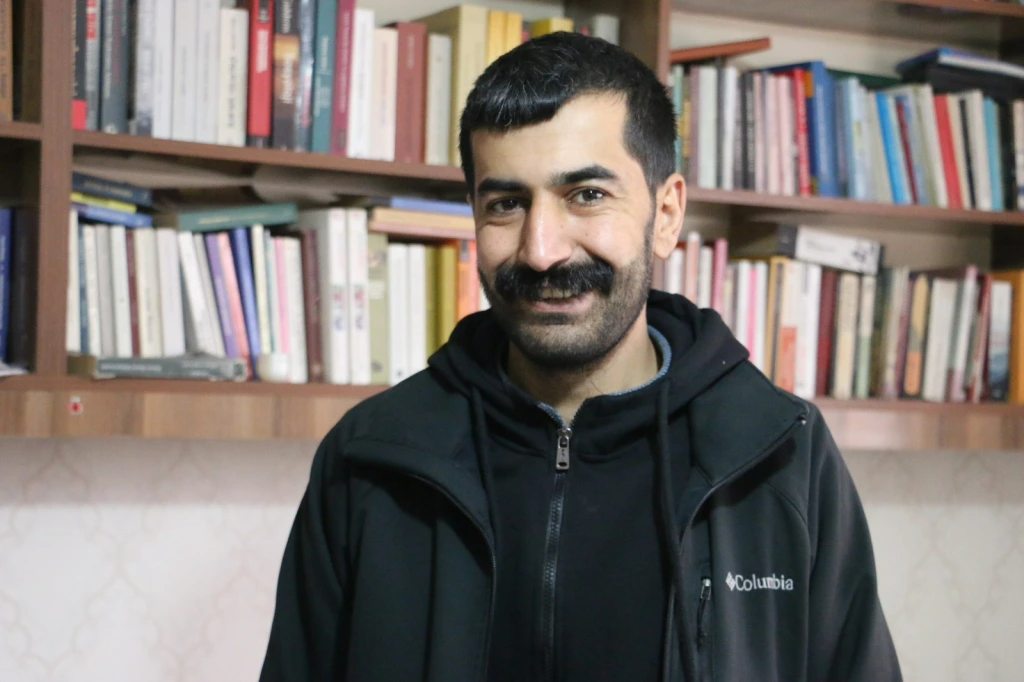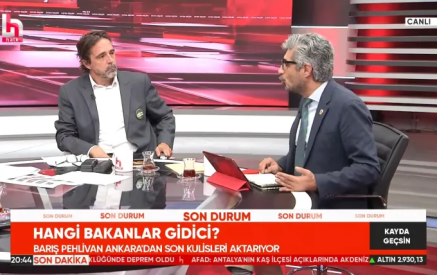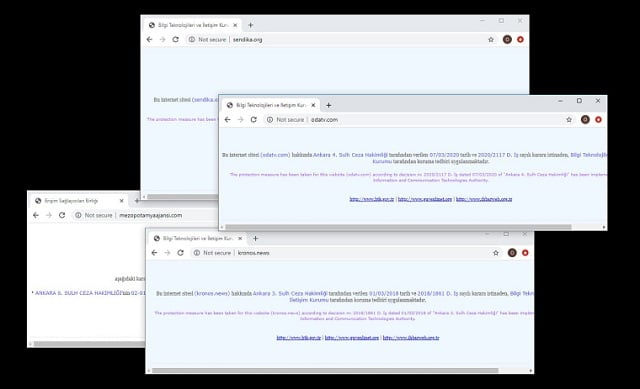Nedim Türfent knows why he spent six and a half years of his life behind bars as a convicted terrorist in Turkey. The court that sentenced him explained the verdict in official documents: Because he writes “exaggerated and disturbing news stories” about the state.
After his prison term ended in November 2022, “It was a very nice feeling to be among a crowd after being alone for so long,” Türfent told CPJ’s Turkey Representative Özgür Öğret. “I’ve been hosting so many guests.” The rest of the interview, translated from Turkish and lightly edited for clarity and length, appears below.
Though Türfent’s prosecution was openly retaliatory and all 13 of the state’s initial witnesses recanted their testimony against him, he told CPJ that his case received comparatively limited attention in Turkey because he’s Kurdish. Türfent was born on the Turkey’s southeastern edge bordering Iran and Iraq, a predominantly Kurdish area and a stronghold for armed groups seeking autonomous rule. He began reporting on rights violations in local conflict zones for the now-shuttered Dicle News Agency (DİHA) to help victims whose stories never made it beyond the region. Instead, he became one of those stories.
Turkish authorities stepped up such violations in the past year, with the arrest of dozens of Kurdish journalists on suspicion of terrorism, making it the world’s fourth worst jailer of journalists at the time of CPJ’s December 1, 2022, prison census.
Read also
CPJ emailed Turkey’s Justice Ministry and the Interior Ministry for comment but did not receive any responses.
What led up to your arrest? There were reports that you received threats.
After I [published] a few stories, I was effectively made a target by the people who were violating human rights, as happens to every journalist who reports on similar violations in conflict zones. Without a doubt, one story kicked everything off. [Editor’s note: In 2016, Türfent reported on a violent mass detention of local Kurdish workers by Turkish counter-terror agents.]
[Authorities] from the governor’s office to the [interior] ministry made statements about how an investigation had been opened [into] the police officers involved. Needless to say, that was just a formality.
First, I was followed and verbally assaulted. Then things escalated. I was shot at with plastic bullets and received death threats on social media from [accounts ostensibly associated with Turkish counter-terrorism special forces]. It is not easy to receive death threats directly from the forces tasked with protecting you. [My lawyers] filed criminal complaints, but [the threats were] not even investigated.
Things came to a head when special operations officers detained me. [They] denied it for hours, and it was only confirmed that I was in custody after pressure from the public. I was subjected to intense physical violence. Our complaints about that were ignored, too. This is the far end of Turkey! Nobody would know about it. And what then, even if they do? [The authorities] have a huge culture of impunity backing them up.
How did you feel when the prosecution witnesses withdrew testimonies against you? Did you still expect to be convicted?
I was made to wait [in prison] for 13 months for an indictment, so for more than a year I had no idea what I was being accused of. Then came a farcical trial; a trial in name only. The prosecution witnesses told the court that they were forced to sign their testimonies [against me] by police officers.
I wasn’t shocked exactly, because forced testimonies are in demand around here! [But the prosecutor’s] hands were left empty [when they were withdrawn]. Everybody assumed that I was not going to be sentenced. However, a judge who had voted for me to be released [pending trial] at an earlier hearing was suddenly removed from the court council. At that moment, we understood that these people were acting from political motivations, and that the verdict would not be independent.
Were the witnesses’ claims investigated?
One of the women said officers threatened to rape her if she would not sign the testimony. Another said they removed his teeth with pincers when he refused to sign. The other [accounts] were all similar. The course of the trial would have changed immediately if we were in a normal country – an investigation would be started in a flash. However, [the judges] preferred to play deaf, dumb, and blind.
Why do you think you were targeted?
It was obvious that the free press was being targeted, and [through my treatment] a firm message was being delivered to other journalists on [the authorities’] behalf. [I was] made into an example.
Tell us about your experience in prison.
I was in [five different closed or high security prisons.] I usually spent my days reading and writing. I was arbitrarily kept in solitary confinement for 18 months. Our rights were [constantly being] shelved. Both the state of emergency and the pandemic [provided] strong grounds for that.
There are serious problems with access to medical services in prisons. Sometimes [when] you have a complaint or an illness, your petitions to go to the infirmary can [take] more than a month [to get a response]. Then, my rights to conversation, sports, courses and other social activities, and [my access to] books, newspapers, publications, TV and radio; all were [arbitrarily denied at times].
I was not subjected to physical torture in prison, but being kept isolated for years is torture in itself.
Your trial and conviction did not receive a lot of media attention in Turkey. How would you explain this?
There is a fundamental reason for this harsh punishment to journalism not getting its due in the national agenda, despite all the scandals and legal oddities: national and international press freedom groups display about 10% of the reaction to an arrest in Istanbul for one in Hakkari [in the southeast]. This adds insult to injury. We know journalists whose trials are yet to begin. It was too late for us; let it not be too late for them. It should not be.
Will you continue to practice journalism? What are your plans for the future?
There is no option to not practice journalism. Our profession is our pride; we will not drop the pen because we paid a little penance for it. There is a need for writers and artists to [record the people’s perspective of] the troubles that have been ongoing for over a century in our country. Journalism in Turkey is in its death throes, but I have one life, I humbly intend to keep on writing.
But I intend to give myself some more time and take a breath. I have earned that much, haven’t I?
Özgür Öğret is a Turkish freelance journalist and CPJ’s Turkey representative. He was lead researcher for the 2012 CPJ special report, “Turkey’s Press Freedom Crisis.”

























































